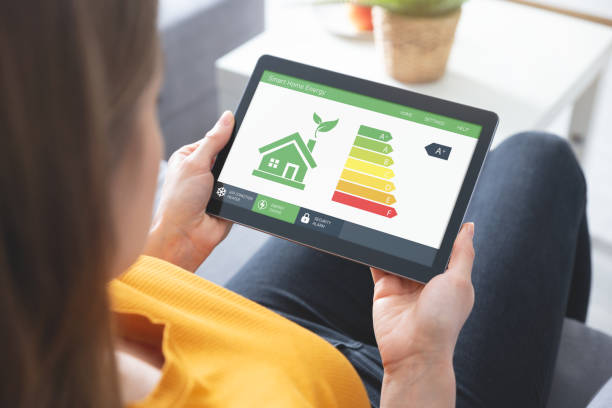The UK government has implemented a number of policies and schemes to reduce its carbon emissions and reach net-zero emissions by 2050. The Energy Company Obligation (ECO) scheme is one of these schemes. This article will give you an overview of ECO’s background, duties to energy companies, and importance in making UK housing more sustainable. We will also talk about the newest version of the scheme, called ECO4 Scheme, pointing out its special features, how it gives support, who is eligible, and the services it offers.
The ECO4 scheme is the last phase and is more comprehensive than ECO3. It aims to provide free heating upgrades to UK low-income households, like free boiler upgrades, heat pumps, insulation, first-time central heating grants, and renewable energy sources.
What is ECO Funding?
ECO stands for the Energy Company Obligation. The government designed an ongoing scheme that mandates large private energy companies to help the UK reach its emissions reduction targets. Energy companies must help fund the installation of energy-efficient solutions in consumers’ homes, focusing on insulation and heating systems. It has four phases. The last two phases are ECO3 and ECO4 Scheme. The transition from ECO3 to ECO4 represents a significant evolution in the Energy Company Obligation (ECO4) scheme. While retaining some similarities with its predecessor, ECO4 introduces crucial differences to reach more vulnerable households and address fuel poverty in specific regions.
Let’s explore the differences between both of them.
What is ECO3?
ECO3 was in place until 2022 and took effect in 2018. It allows those eligible to receive extra funding to install more efficient heating systems and insulation in their homes.
What Will Change With ECO4 Scheme?
ECO3 has been replaced with ECO4. It continues to focus on low-income families, helping them save money on heating costs while eliminating fuel poverty.
One big change is that energy companies can now put double as much money into Local Authority Flexible Energy (LA Flex) schemes. This is how much funding comes through this route, so stay tuned.
Another big change is that some of the benefits that were available for ECO3 are no longer available for ECO4. This means some people who previously qualified for ECO3 funds may still need them. Here is a list of the ECO3 benefits removed in ECO4.
Benefits that received funding under ECO3 that are no longer eligible for funding under ECO4:
- Disability Living Allowance (DLA)
- Personal Independence Payment (PIP)
- Attendance Allowance
- Carer’s Allowance
- Severe Disablement Allowance
- Industrial Injuries Disablement Benefit
- War Pensions Mobility Supplement
- Constant Attendance Allowance
- Armed Forces Independence Payment
Benefits that will receive funding under ECO4:
- Income Based Jobseekers Allowance (JSA)
- Income Support (IS)
- Pension Credit Guarantee Credit
- Income Related Employment & Support Allowance (ESA)
- Working Tax Credit (WTC)
- Child Tax Credits (CTC)
- Child Benefit*
- Universal Credit (UC)
- Housing Benefit
- Pension Credit Savings Credit
*If Child Benefit is the only benefit you receive, you must also meet an income test (there are no income requirements if you have claimed any other benefits listed).
The last two on this list (Housing Benefit and Pension Credit Savings Credit) were not previously eligible for ECO3 and have been added to ECO4.
These significant changes will affect who can access the scheme and how they can access it.
Key Differences Between ECO3 and ECO4
1- Scheme Duration and Scale
ECO3 officially closed to new applications on March 31, 2022, making way for ECO4, which commenced in August 2022.
ECO4 is expected to run until March 31, 2026, unless energy companies fulfil their obligations sooner. The scheme benefits from a substantial £4 billion in funding to support its initiatives.
2- Changes in Eligibility Criteria
An outstanding difference between ECO3 and ECO4 lies in the eligibility criteria.
ECO3: As ECO3 allowed certain benefits to be eligible as described above.
ECO4: The qualifications were narrowed, aiming to better target households with lower incomes. This shift ensures that support reaches those who are most in need.
3- Reduced Boiler Support
ECO3: Under ECO3, many boilers were upgraded, benefiting numerous households.
ECO4: However, ECO4 takes a different approach, limiting boiler support to 5,000 homes. This decrease shows that the scheme now focuses on other energy-saving ways.
4- Types of Measures and Flexibility
ECO3: This phase includes heating upgrades, insulation, and renewable energy installation measures. However, its range is limited, and its main emphasis is on boiler replacements and essential insulation.
ECO4: It expands the scope of eligible measures to include more comprehensive whole-house upgrades. This involves a significant focus on detail retrofitting to transform the energy efficiency of whole properties rather than limited improvements. Its measures now involve advanced insulation techniques, renewable energy technologies (such as solar panels and heat pumps), and smart home systems.
Insulation measures and green heating systems, such as air-source heat pumps, are key components of ECO4. These measures offer significant energy savings and reduced bills for households. While biomass boilers are still supported, they are considered only if a heat pump is not viable.
Summary
In summary, ECO4 represents a significant evolution from ECO3 and a strategic shift in the Energy Company Obligation scheme. It emphasises reaching vulnerable households, adjusting eligibility criteria, reducing boiler support, and prioritising insulation and heat pumps. These changes are designed to enhance the scheme’s effectiveness in providing affordable and energy-efficient solutions to those who need them most. One of ECO4’s central objectives is to target vulnerable households more effectively. It focuses explicitly on households receiving benefits or falling within the low-income bracket. By doing so, ECO4 aims to ensure that all homes have access to affordable energy, reducing the burden of high energy bills on those who need it most.








